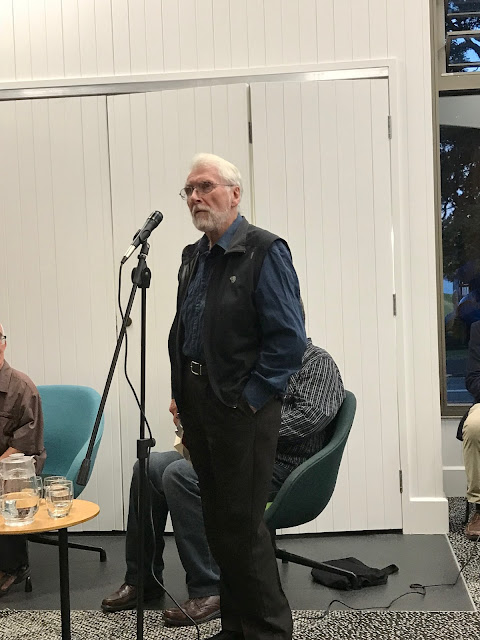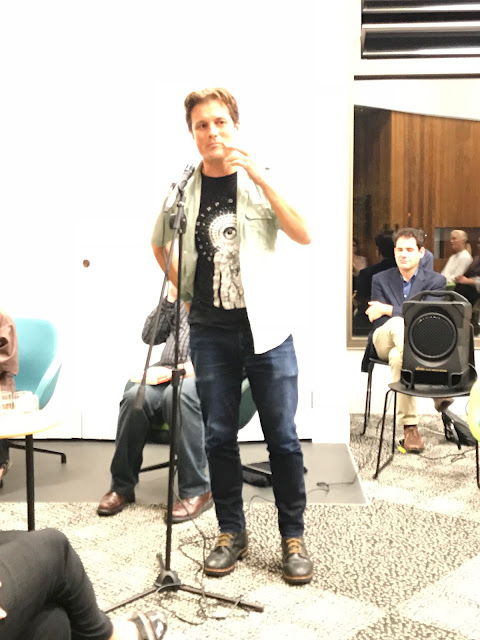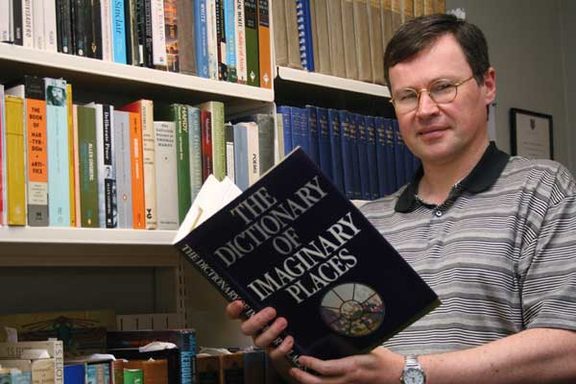Poetry alive and in progress: Poetry NZ Yearbook 2018 published

Poetry New Zealand Yearbook 2018 is officially launched at an event in Devonport, with special guest Alistair Paterson. [photos: Laine Moger]
A collection of new poetry has been metaphorically launched into the "literary waters" of New Zealand for the 52nd year in a row.
Distinguished poet and Massey creative writing teacher Bryan Walpert officially declared the Poetry New Zealand Yearbook 2018 launched, at an event at Auckland's Devonport Library on March 20.
Walpert noted the word "launch" was a metaphor, used first by Mark Twain in 1870 and, as poets deal in metaphor, it was fitting to begin such an event with such a word.

Some of the poetry readings elicited a few giggles from the crowd.
The theme of the book was "traditions", and the diversity of poems in it had Walpert describing it as "moving through an interesting and vivacious cocktail party".
READ MORE:
* Devonport Library launches Poetry New Zealand Yearbook with a slam
* Online poetry collection reflects ethnic diversity of New Zealand
The book is filled with image, connotation, figure and form - a variety of poetry, he said.

Alistair Paterson's presence at the event was somewhat of a treat for the poets, many of whom owe him their first published poem.
Alistair Paterson was the featured poet of the book, and esteemed guest at the launch. For many poets reading at the event, it was Paterson who gave them their first published poem.
He was the previous editor before Massey University Press, for 20 years from 1994 to 2014, and one of his poems was published in the very first publication in 1951.

Poet Devon Webb was asked to return to the event to deliver her slam poetry, a hit at last year's launch.
"I am still learning my craft and learning it from the poets of today," Paterson said.
The privilege was not given by the poet, rather it was the reader who privileges the poet, he added.

Editor Jack Ross said he has been a fan of Richard von Sturmer for as long as he has been interested in poetry.
Editor Jack Ross said the variety and diversity of form in the book was a way to "gauge the temperature" of poetry.
Issue 52 of the yearbook features 130 new poems by 87 poets. The poetry yearbook has been continuously published since 1951.

The yearbook is now available for purchase.

Callum Gentleman read two of his poems.
A selection of poets, including the three winners of the Poetry New Zealand competition, were invited to read at the event in celebration of their craft.
The winners for 2018:
- 1st Prize: Fardowsa Mohamed
- 2nd Prize: Semira Davis
- 3rd Prize: Henry Ludbrook



























